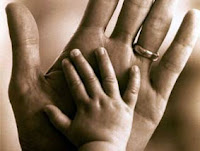 Trust.
Trust.A small word. A precious idea, a powerful feeling.
We know when we have trust; and when we don’t have trust. Is something that we feel, we see in the eyes. And when trust exists everything seems to be more easy and even more confortable to achieve.
And what is trust?Dr. Duane C. Tway, Jr. from Texas University, in his 1993 dissertation, "A Construct of Trust" defines trust as "the state of readiness for unguarded interaction with someone or something." Tway considers that trust is like a construction, made by three foundations:"the capacity for trusting, the perception of competence, and the perception of intentions."
- The capacity for trusting means that your total life experiences have developed your current capacity and willingness to risk trusting others.
- The perception of competence is made up of your perception of your ability and the ability of others with whom you work to perform competently at whatever is needed in your current situation.
- The perception of intentions, as defined by Tway, is your perception that the actions, words, direction, mission, or decisions are motivated by mutually-serving rather than self-serving motives.
So, trust is the natural and necessary precursor for:
- Feeling able to rely upon a person,
- Cooperating with and experiencing teamwork with a group,
- Taking thoughtful risks, and
- Experiencing believable communication.
Comentários